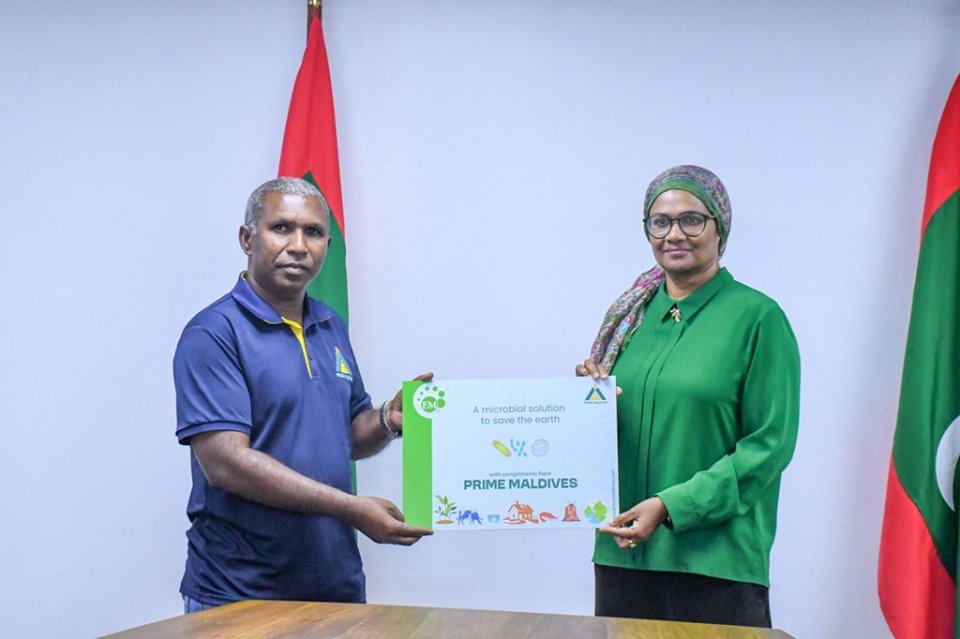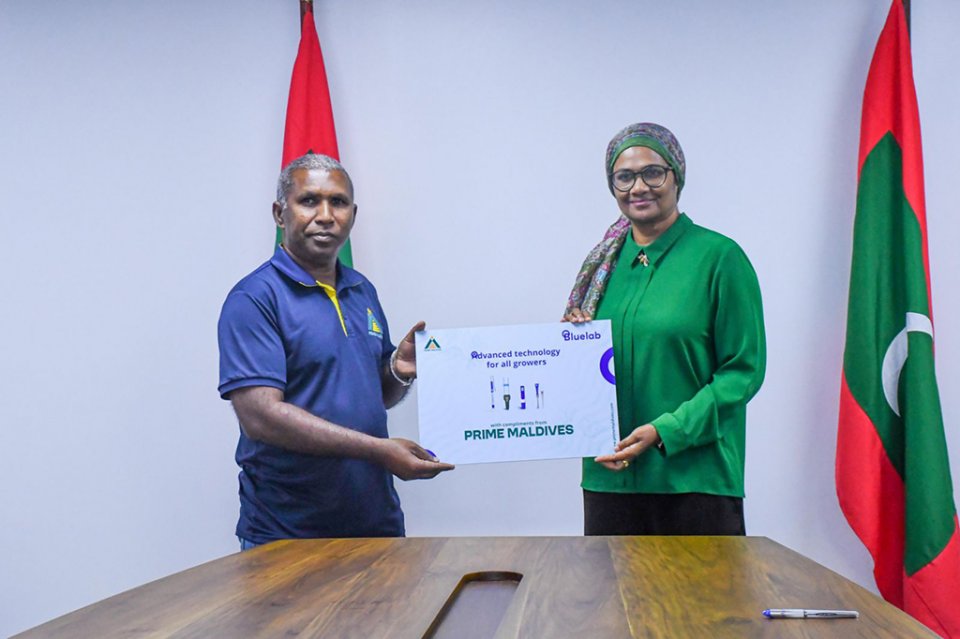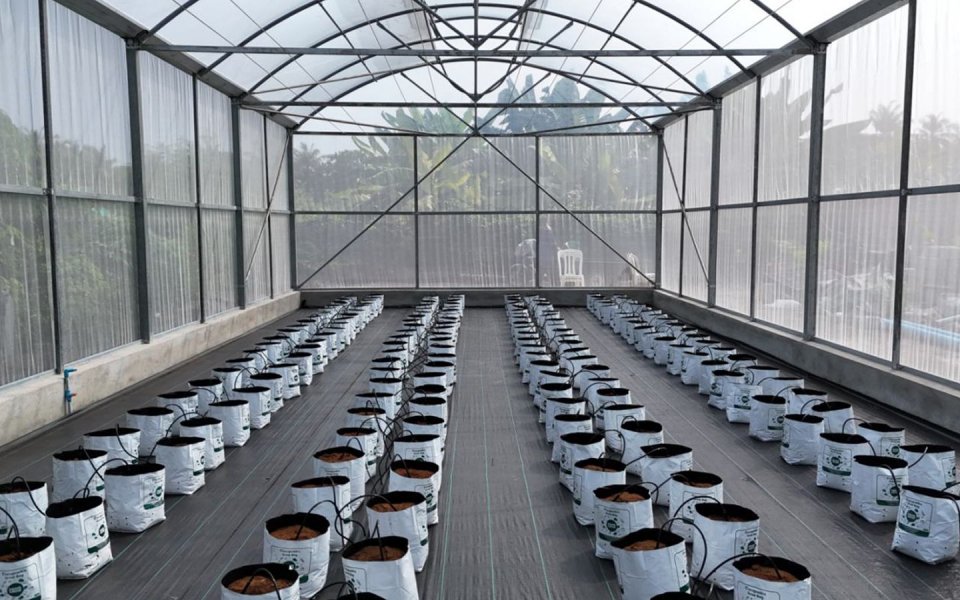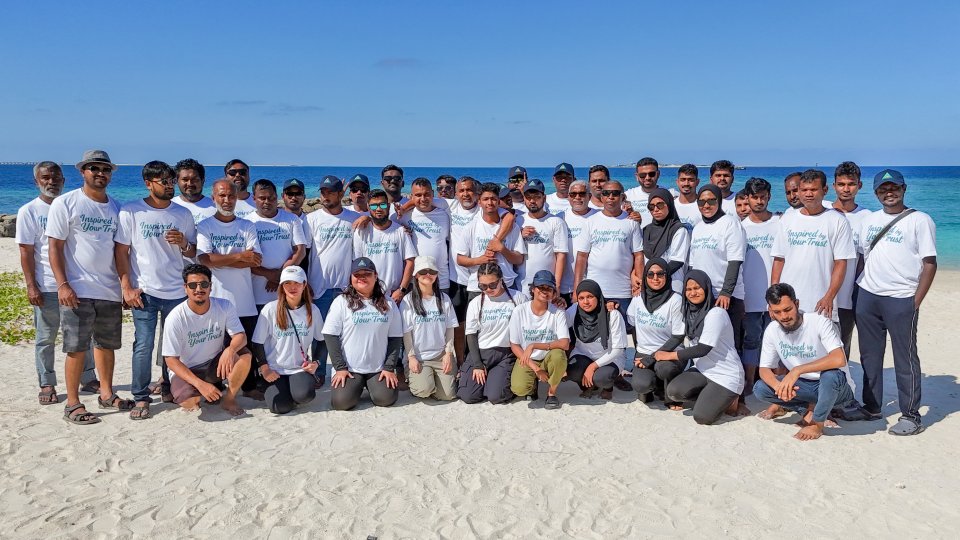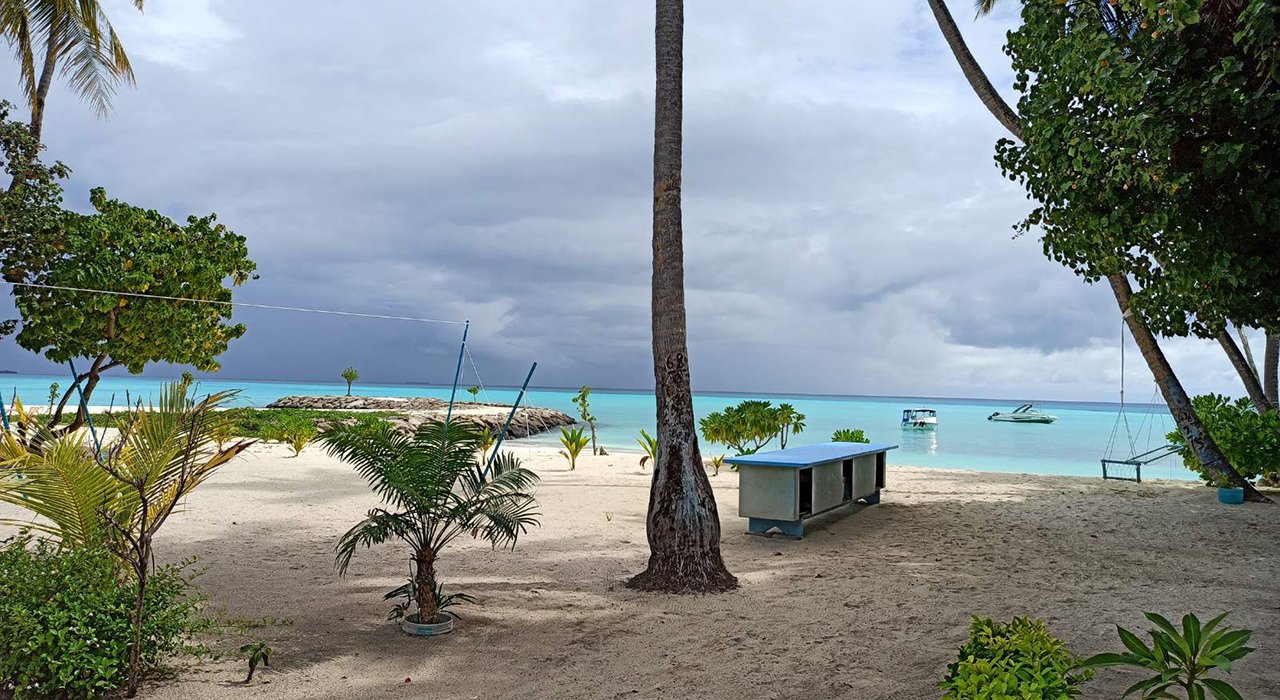
From November 19th to 21st, the Fulidhoo Council hosted a special training session aimed at revolutionizing waste management and mosquito control on the island. The training, facilitated by experts, introduced the council and community members to Effective Microorganisms (EM)—a groundbreaking tool for achieving environmental sustainability.
Fulidhoo, a gem in the Vaavu Atoll, spans 11.3 hectares and is celebrated for its pristine environment and thriving local tourism industry. Known for its crystal-clear waters and serene ambiance, the island attracts visitors from all corners of the globe.
Effective Microorganisms (EM) are a unique blend of beneficial microorganisms, primarily lactic acid bacteria, yeast, and phototrophic bacteria, that work synergistically to improve soil, water, and waste management systems. Developed in the 1980s by Dr. Teruo Higa in Japan, EM has gained global recognition for its ability to support sustainable practices across various sectors, including agriculture, environmental management, and public health.
The three-day training was designed to empower Fulidhoo’s council and community with practical knowledge and hands-on experience in harnessing EM for sustainable waste management and environmental health. Key topics covered included:
Participants learned about the science behind EM, its composition, and its ability to support natural processes. They gained insight into how EM can restore ecological balance without relying on harmful chemicals.
The session highlighted how EM can break down organic waste efficiently, minimizing foul odors, reducing landfill waste, and preventing the contamination of surrounding ecosystems.
The training included demonstrations on using EM to accelerate composting, turning organic waste into nutrient-rich compost for agricultural or gardening purposes.
Participants discovered how EM can clean public spaces, eliminate unpleasant odors, and improve overall environmental hygiene.
A critical focus was on EM's role in controlling mosquito populations. By suppressing mosquito larvae in stagnant water, EM offers a sustainable alternative to chemical fogging, aligning with the council's goal to discontinue this practice.
Fulidhoo has long relied on chemical fogging to control mosquitoes. While effective in the short term, this method poses health risks and environmental concerns. The council’s commitment to finding sustainable alternatives led to their interest in EM. With its natural, non-toxic properties, EM provides a long-term solution that aligns with Fulidhoo's vision of maintaining its untouched environment.
By adopting EM-based waste management and mosquito control strategies, Fulidhoo can enhance its ecological appeal and strengthen its reputation as a sustainable tourism destination.
The success of this training marks an important step toward sustainable practices in the Maldives. Fulidhoo's efforts can serve as a model for other islands seeking eco-friendly solutions to waste management and pest control. By incorporating EM into daily operations, the island community can continue to thrive in harmony with nature.
As Fulidhoo embraces these new practices, it sets an inspiring example of how small steps can lead to significant environmental impacts, safeguarding the natural beauty that makes the Maldives a global treasure.
